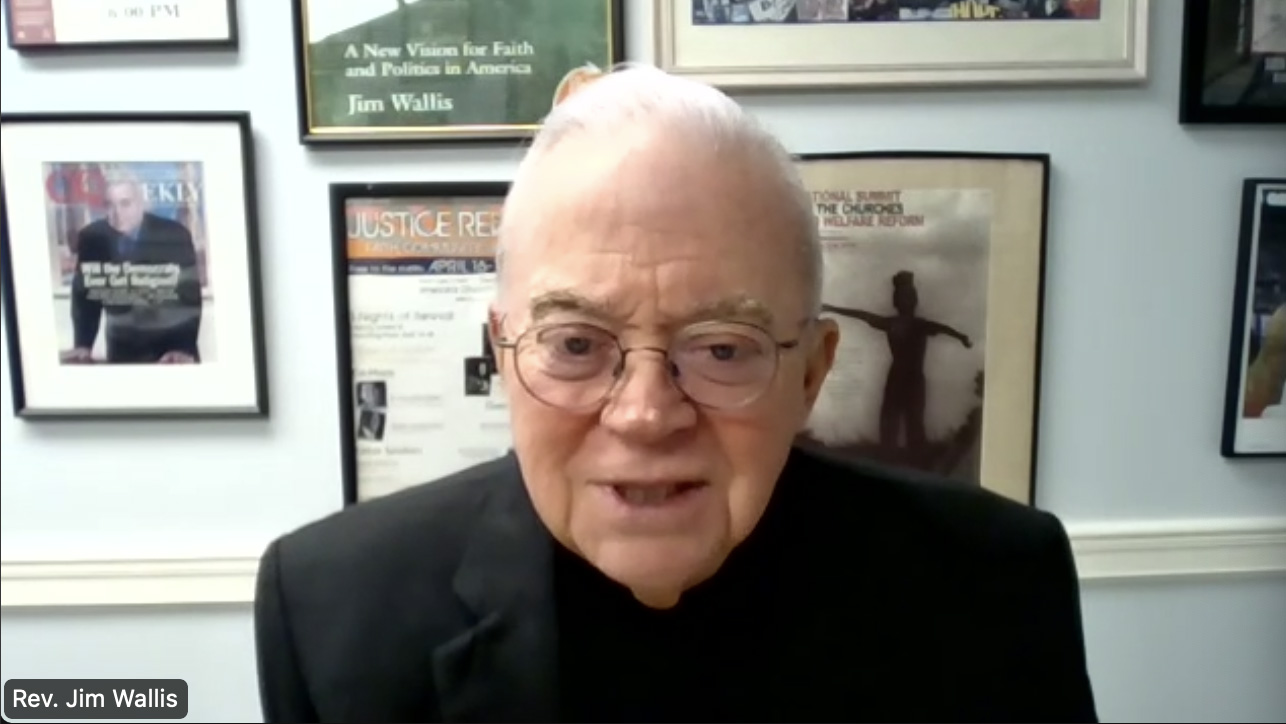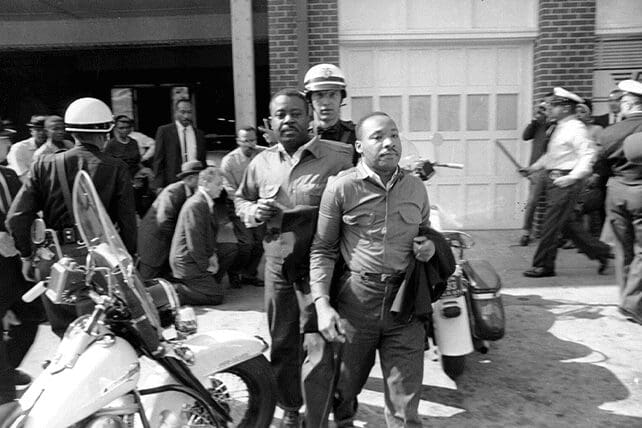(RNS) — It’s been more than half a century since the Rev. Martin Luther King Jr. wrote his famous “Letter from Birmingham Jail” on scraps of paper, but faith leaders say his response to white clergy critics endures as a “road map” for those working on justice and equal rights.
Recent events and exhibitions tied to its anniversary have revealed the ongoing interest in and relevance of King’s letter, in which the civil rights leader proclaimed: “Injustice anywhere is a threat to justice everywhere. We are caught in an inescapable network of mutuality, tied in a single garment of destiny. Whatever affects one directly, affects all indirectly.”
Georgetown University’s Center on Faith and Justice held a virtual event on Wednesday (April 26) to mark 60 years since King penned the letter on April 16, 1963, after being jailed for his organization of a nonviolent demonstration on Good Friday that year in the Alabama city. The letter was released publicly the next month and was included in his 1964 book “Why We Can’t Wait.”
The Rev. Jim Wallis, the center’s director, noted how King wrote that the greatest “stumbling block” for freedom-seeking Black Americans was — rather than a Ku Klux Klan member — the “white moderate, who is more devoted to ‘order’ than to justice; who prefers a negative peace which is the absence of tension to a positive peace which is the presence of justice.”
Wallis pointed to the current debate in some school districts over what books children can and can’t read as an example of why the letter continues to be relevant.

The Rev. Jim Wallis speaks during a virtual event on April 26, 2023, to mark 60 years since the Rev. Martin Luther King Jr. penned the “Letter from Birmingham Jail.” Video screen grab
“We know that it is impossible to build a truly multiracial democracy if we do not wrestle honestly and directly with its legacy and current manifestations of white supremacy,’’ he said. “At the moment when some are trying to erase our history, especially our racial history, remembering and learning from the past is now more important than ever.”
King’s letter was addressed to eight clergymen, whom he called “my Christian and Jewish brothers,” after they questioned the need for and the urgency of the Birmingham campaign he had led as the president of the Southern Christian Leadership Conference.
Bishop Vashti McKenzie, the interim president of the National Council of Churches, shared at the event how King’s letter guided her family’s prayers for her older brother’s safety as he traveled that year by bus to the South to aid the movement.
“It was a fearful time, a fearful time when something had to be done,” she said. “The African diaspora is calling you to do it. And King gives us a road map on how to begin that process of change.”

The Rev. Otis Moss III participates in a virtual event on April 26, 2023, to mark 60 years since the Rev. Martin Luther King Jr. penned the “Letter from Birmingham Jail.” Video screen grab
The Rev. Otis Moss III, pastor of Chicago’s Trinity United Church of Christ, called the letter part of the “extracanonical material” his family thought necessary to read beyond the Bible.
“What’s so important about it today is you still have people who have ecclesiastical positions but have no moral authority and who are trying to claim moral authority,” said Moss, who, like McKenzie, was required to read the letter at the historically Black college he attended. “He was talking to the Christian nationalists of his day and setting them straight and saying, ‘You have no moral authority.’”
The 60th anniversary of the letter has been marked with talks at churches, a parade in Oklahoma City and exhibits of related artwork at the New Jersey State Museum, as well as the display of an early draft at the New York International Antiquarian Book Fair.

